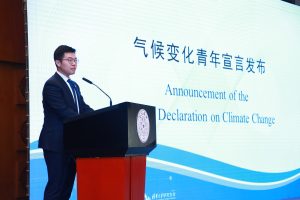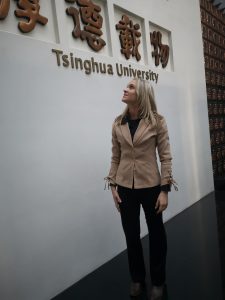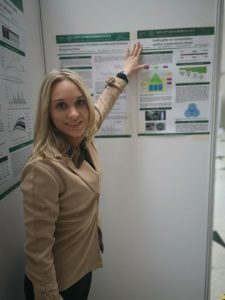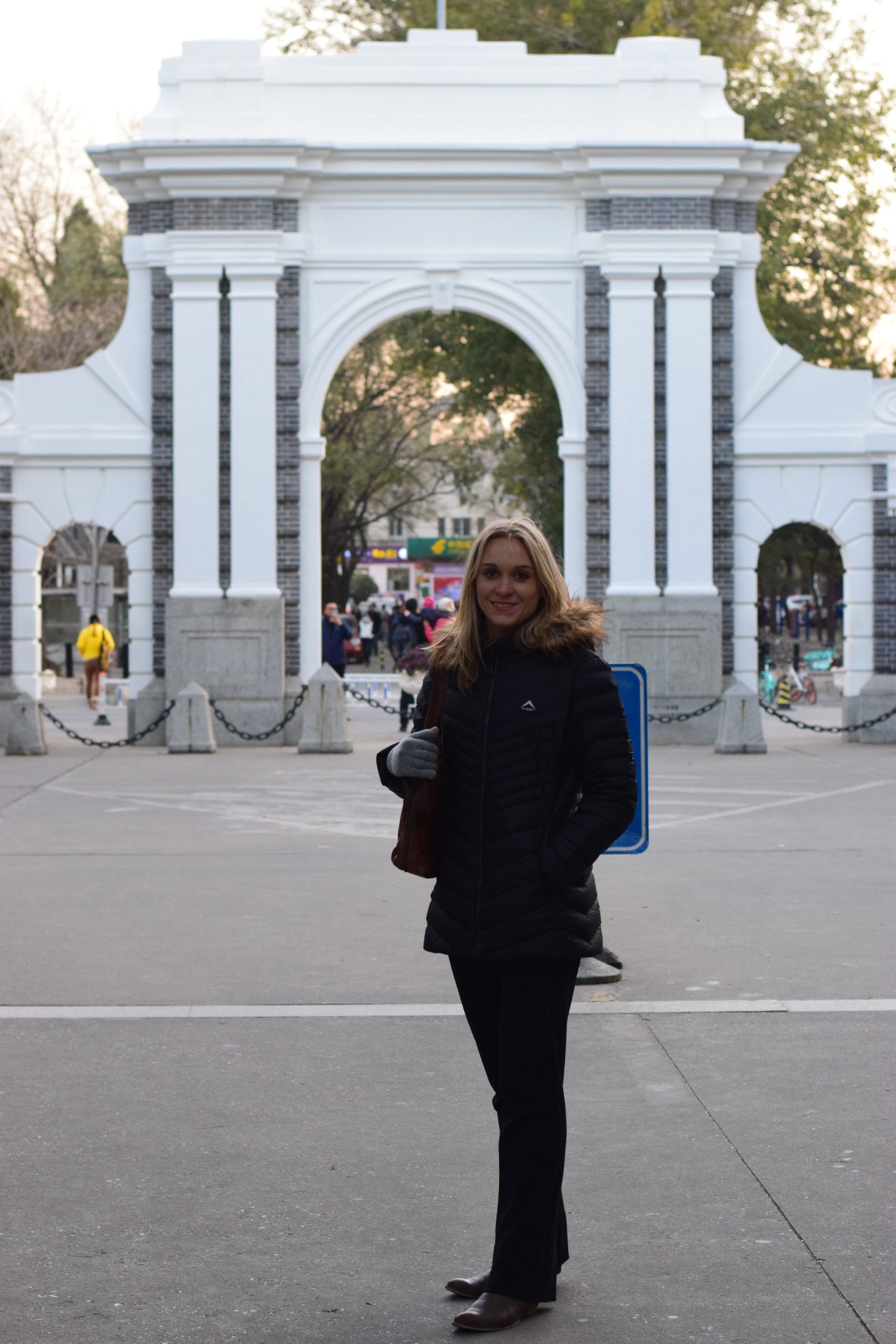Graduate Academic Forum of the Global Alliance of Universities on Climate at Tsinghua University in Beijing, China
The following documents the experience I had while representing Stellenbosch University at the Graduate Academic forum of the Global Alliance of Universities on Climate (GAUC) and will serves as a useful guideline of how to prepare for the trip to China. The GAUC consists of twelve universities, namely MIT, the London School of Economics, University of Cambridge, Australian National University, University of Tokyo, California, Berkeley, Federal University of Rio de Janeiro, Imperial College London, the Indian Institute of Science, Stellenbosch University and Tsinghua University. The focus of the forum is to establish student-level participation and conversations regarding climate change as a major global challenge and priority for the youth.

Pre-departure
For a visa application at the Chinese embassy you do not need an appointment, it is first come first serve, so it is best to be early. The Chinese VISAs only take a week (which is fairly quick), but try to go at least two weeks in advance, best case a month before. It is advised to take the following:
- Completed online application form. Select type F visa.
- VISA photos according to specifications for Chinese visa photos). Wear a shirt that’s not white so that you stand out against the white background.
- Your invitation letter provided by the conference organisers.
- A leave letter from your study leader saying that you have leave from Stellenbosch University and specifying that you will be required to come back to complete your studies for degree purposes after the trip.
- Official registration letter for VISA purposes from the university.
- Accommodation reservation: if you want to stay a day or two longer in Beijing you will have to provide a booking reservation. Agoda and Bookings.com both have good deals and allows you to pay at the property. To see the sights, I recommend to stay in a place with someone who understands English and is situated safe and central to the main attractions. TripAdvisor has accurate reviews, visitor photos and advice about each place.
- Your flight itinerary.
- A colour copy of your passport Bio page – verified at the post office or the police station that’s open 24hrs.
Additional documents that might prove useful to take with you to the Chinese embassy:
- Three months bank statements with at least $100 per day in your account for the time you’re out of South Africa, but they might not use these depending on your visa type (that can changed by the assistant once you are at the VISA office).
- Flight purchase or some form of indication that you, or a sponsor can/will pay it.
- Travel insurance if you have purchased (not a requirement for Chinese visa but a good idea and not too expensive).
- Conference info and agenda.
Print out the address and directions to your hotel in Chinese/Mandarin to take with you. This is the easiest way to communicate with taxi drivers as they do not understand English. Installing a translator app that works in China will also be important, as the best way to communicate is to type your message in the translator and show it to the other person. You should install the WeChat, Didi and Alipay apps as opposed to WhatsApp, Uber and PayPal. Most people in China pay with their phones using Alipay. China also has their own apps for navigation and maps. I bought a Chinese SIM card at the airport and would recommend you doing so as well. This also helps the organisers to contract you if you should get lost on campus or to inform you about last minute changes on their schedules.

During the Forum
The work you submitted for the forum will either be asked to be presented on a A2 poster or you will be asked to do a formal oral presentation in one of the parallel sessions. The themes for the parallel sessions were: “The Zero Emission Technical Revolution” and “Building Green Future: Economic-Social-Ecological System”. The Youth Declaration on Climate Change was also established to state that climate change is a very important priority and responsibility of the youth and that we should take an active stand in order to solve its challenges.
There were also cultural activities integrated with the forum program. The hosts took us to both the Tsinghua University Art and History Museums. Keep your passport and a bit of cash on you, museums and tourist sites require your passport and you will be asked to pay your own entrance fees.
Breakfast was provided at the hotel restaurant where they accommodated all the delegates. We were also provided with a meal card to use at the campus cafeterias for lunch and dinner. The best and most affordable place to use the food cards is the Tsinghua University Student Culture Activity Centre where the food is similar to McDonalds, but prices are roughly R30-R40 per meal (burger, chips and coke). This is also one of the cafeterias that serve western foods. Some of the burgers and food can be very spicy, so it would be a good idea to have a Chinese translation of what food you would like to order before placing your order.

After the Forum
You may want to go see one or two sights after the forum has finished and there isn’t really any free time to do so during the forum. Also, as China gets rapidly colder as November progresses, it would most probably be better to book the extra day or two for sight seeing before the forum starts to have a few degrees warmer weather. Some of the students went to see the Great Wall of China which is about 2 hours away by bus, though this might be a relative expensive option. No worry, Beijing has many sights that is inexpensive and not far from Tsinghua. The “Palace Museum” is situated in the center of Beijing where the “The Last Emperor” movie was shot and the “Lama Palace” also nearby where you can go see typical Chinese artwork buildings and experience a piece of the Buddhism culture. Both these place offer student discount on tickets, but will ask if you are undergraduate as China only offer student discount to undergraduate students.
Lastly, student delegates were offered an opportunity to write a collaborative letter to Xi Jinping, the Chinese president, as to highlight the importance of climate change in our society and that we as youth see it as an important priority and personal challenge to solve. The president responded with an email after the forum where he shared his personal experience, when he was still a young man, with the devastating effects of unsustainable development in a small village resulting in economic collapse. He also shared his vision for China in tackling climate change towards becoming a sustainable ecological civilisation. The delegates also received the opportunity to respond to the president’s letter. It is clear that climate change is bigger and accelerating faster than what is historically considered to be natural. It is all of our duty to become informed and involved in order to divert from our current path towards a sustainable future.
